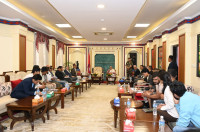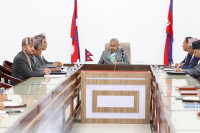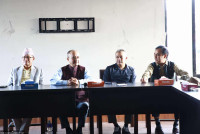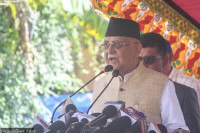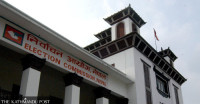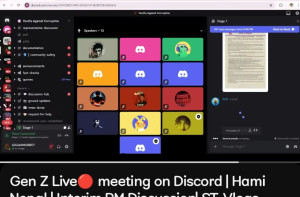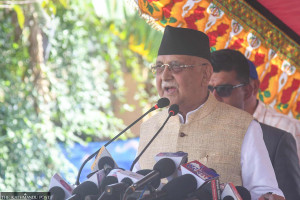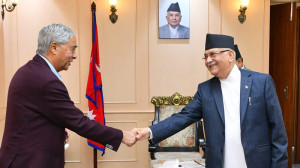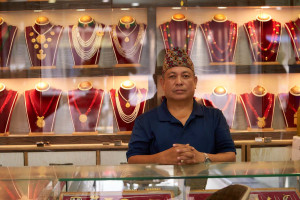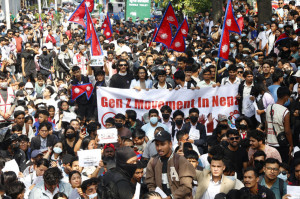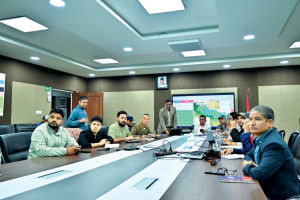Politics
Political parties have a trust issue with the government
While election body invites parties for talks, the government appears indifferent to do so.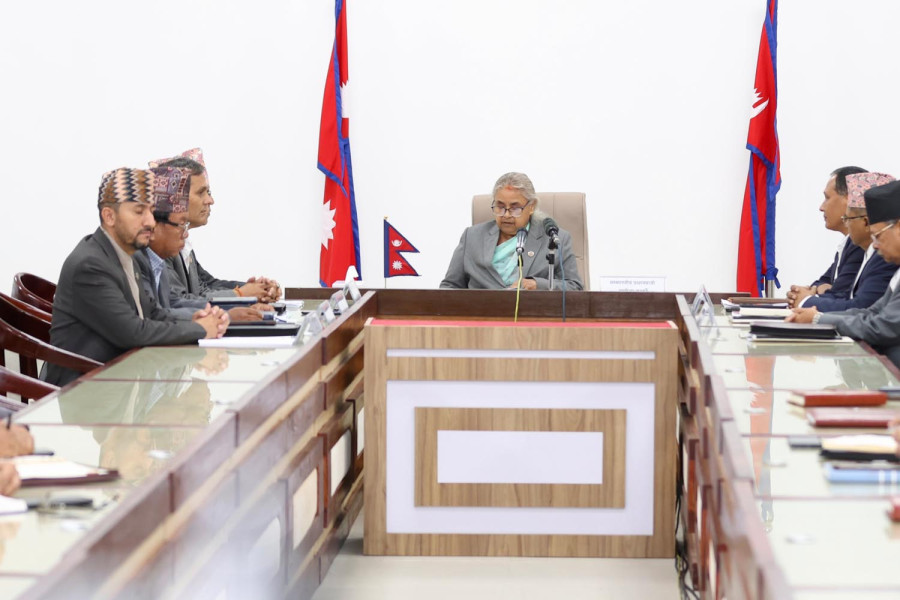
Binod Ghimire
Even as political parties criticise the government for ignoring them and failing to create a conducive environment for the March 5 snap polls, the Sushila Karki administration has no plan to sit with them anytime soon.
On September 12, President Ramchandra Paudel, on Karki’s recommendation, dissolved the House of Representatives and announced the mid-term elections. But with less than five months for the vote, there has been no initiative from the government to engage the parties ousted by the Gen Z movement in September second week.
The government’s indifference has had the political parties skeptical at its intention. A meeting of the Nepali Congress’s incumbent and former office bearers on Thursday discussed the issue, with a number of leaders complaining that the government, which has been in power for a month, is ignoring the political parties, treating them as if they don’t exist.
“This government is biased against political parties,” Min Bishwakarma, publicity department head of the Nepali Congress, said, offering a synopsis of the opinion delivered during the meeting. “How can we trust that the government really wants to hold the elections? Can there be elections without the participation of major political parties?”
He said most of the leaders in the meeting argued that only the timely election can correct the current breach in the constitution. However, there must be a guarantee that the election will be held in a free, fair, intimidation-free and peaceful environment, they said. “It is the government’s responsibility to build trust but it looks unwilling to do so,” Bishwakarma added.
After the complaints, the Election Commission is commencing consultations on October 16. But the government remains unprepared.
Jagdish Kharel, minister for information and communication technology, said there has been a tradition that the election commission takes a lead in holding consultations. “The commission, a constitutional body, is the primary agency to hold such consultations,” said Kharel, also the government spokesperson. “The President, as a guardian of the nation, and also the government can talk with parties, if necessary. No party has said it will not participate in the election. And the government is there to hold the polls successfully.”
The political parties do not agree. They say as an interim government with primary responsibility to hold the elections, it must work to build trust and confidence for free and fair polls.
“The indifference of this government to engage the political parties gives room to suspect its intention. This is not how election governments function,” said Rajendra Gautam, publicity department chief of the CPN-UML. “We will participate in the commission’s meeting. But the commission’s effort alone is not enough.”
The commission, after its meeting with the government on Tuesday, decided to invite the parties for the consultation. According to an official present in the meeting, there was a broader understanding that the commission would hold discussion on technical and managerial issues while the government would discuss the political matters with the parties.
The commission has invited 29 parties with at least one elected representative in the previous federal and local elections to the meeting. The commission is expecting two representatives from each party.
Narayan Prasad Bhattarai, spokesperson at the commission, said they will discuss administrative and technical issues with the party representatives. “The discussions will be focused on finalising the nomination date, election code of conduct, and its enforcement,” he said. In its detailed election schedule, the commission has finalised the dates for party registration but has not decided the nomination date for the first-past-the-post polls.
The commission has given until November 16 for the new parties to get registered. Different Gen Z groups, which are preparing to contest the upcoming polls, will have to register their parties by mid-November following the due process. As of July, 122 political parties have been registered with the commission.
Bhattarai said after holding discussions with the 29 political parties, the commission will call the representatives of other registered parties and the stakeholders (Gen Z representatives) for the discussion.
“October 16’s discussion will be just the beginning,” Bhattarai said. “We will move ahead in close coordination with the political parties.”




 14.63°C Kathmandu
14.63°C Kathmandu
